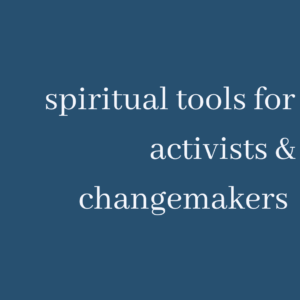In a conversation with a friend recently I was asked my opinion on the Australian Government’s response (or failure of, rather) to assist the thousands of Australians stranded overseas, who have not been able to come home for close to a year due to our closed borders, arrival limits and quarantine caps.
While I’m grateful for all the methods above which have kept Australia a unique almost COVID-free paradise in the world right now, I also feel that we cannot leave our own citizens (or anyone, but that’s another story) stranded in an indefinite limbo because of a failure of imagination or lack of political will to allow people home. That to do so was also a detriment to those of us here, a demonstration of how little we collectively demonstrate care.
Listening to her I was surprised to learn that she felt differently– that the best and most appropriate option was not to charter flights for them or increase quarantine capacity – but rather the primary goal must be to keep the majority safe, even if it meant others were left stranded.
I felt this visceral pulling back in my body until I realised our frameworks for values-based decisions – how we decide what is most important – were different. We all have frameworks we work our decisions through, influenced by our upbringing, our spiritual beliefs, our scarcity beliefs, our political beliefs and a thousand other factors. Some of us choose our frameworks consciously, others form unexamined over the years, but all they are in essence is a collection of values and beliefs that we run our decisions and ideas through.
Unconscious frameworks are usually made up of the lies we’ve been sold throughout life, usually things along the lines of there isn’t enough, or to be afraid of ‘the other’, or we need to fight to keep what we have, that humans are greedy or naturally bad somehow – they’re based on unconscious (and often unhelpful) belief systems. Intentional frameworks are based on values – virtues we want to embody, and want our choices to reflect.
The frameworks that we use at a personal level also exist at the political and collective level – a set of values through which we make decisions. Most western countries, including Australia, use a toxic framework, based on prioritising endless economic growth, retaining power, and perpetuating unexamined biases and prejudices. Most of our current political frameworks lack imagination and prioritise nationalism, fear, and the illusion of security over care, generosity, and a spirit of compassion.
A few years ago I visited Bhutan, a tiny Himalayan Kingdom to learn more about its framework of Gross National Happiness. At its simplest (and I promise it is more complex than this description), GNH is a framework their Government uses to make its decisions based on creating the conditions for happiness for its people. Decisions run through a series of questions and scenarios to understand what is in the highest good of its people and land, and to determine the best course of action.
More recently I have been learning about the New Bottom Line from the Network of Spiritual Progressives –a framework of care that looks to shift us away from the old bottom line of profit above all else, to one that judges success by the extent to which our systems maximise justice, peace, and compassion.
So how do we begin to explore the framework we want for our own lives and choices, as well as our communities and governments?
Decision frameworks essentially come down to values – what defining value do you want to embody? Is it care, happiness, compassion, truth, justice, safety, something else completely? Write out what this value means to you, what it would look like in real-life situations, whether that’s a relationship conflict, or a community decision of how we act together. What would it look like in its most radical form?
What questions would we then need to ask to ensure we’re embodying this value? Who is impacted by these decisions, and how? Is this value one that aligns with their wellbeing?
We can go further too – what additional values would we want to be covering? Who shares these values with us, and how would we explain them to others?
For me, I try to base my decisions around care, and if care is not possible, to at least minimise my participation in violence or harm. Care by my definition is not exclusionary, it doesn’t pick and choose some people over others. Radical care offers compassion and generosity within its toolkit, as well as accountability and justice.
From a wider lens, Australia – and other western countries – have more need to embody a framework of care than elsewhere, a balancing act long overdue after centuries of our moral neglect at the impact of colonisation, violence, and ecological destruction. Our current guiding frameworks are deprived of an emotional robustness and lack the imagination that we humans are capable of.
I want to be clear though that embodying our values or changing our decision frameworks isn’t about perfection – it isn’t about being conflict-free, or making everyone happy, or some sort of utopia. In the case of my example above, realising we were using different frameworks allowed me to be more mindful of my reaction, to cultivate more empathy and understanding as opposed to judgment. It’s about aligning our vision of the world to our daily lives and community practices. It doesn’t guarantee success or change everyone else’s opinions or beliefs – but it does begin to sow the seeds of a new world into reality.
Interested in exploring how you’re able to help the world? Check out coaching for changemakers and activists here.

